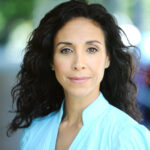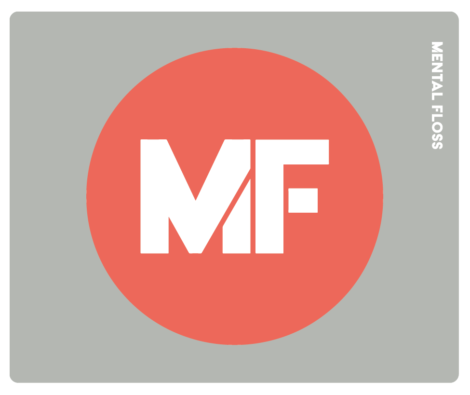Few individuals have done more to promote the field of personal life coaching than Oprah Winfrey. A virtual life coach to many in her own right, Oprah has introduced a slew of personal life coaches and motivators to her viewers over the last 25 years. Today, life coaching is as popular as ever, with an estimated 30,000 business and personal life coaches worldwide, many of whom consider coaching a full-time job. Here’s a closer look at the fast-growing industry.
What is life coaching?
Life coaches often define their livelihoods by describing what life coaching is not.
Life coaching is not psychotherapy, as most life coaches are not trained mental health professionals. While life coaches may occasionally work with individuals who have anxiety, depression, or other more serious problems, they focus on the present rather than delve into the past.
“The difference between life coaching and therapy is that psychotherapy is about helping people heal their wounds and coaching is about helping people achieve the highest level of their fulfillment or happiness or success, whether they’re wounded or not,” psychotherapist and life coach Phil Towle told the Spokesman-Review in 2007. Life coaches may help high-achieving individuals establish a better work-life balance, improve relationships, or lose weight. In short, they help clients figure out what they want and how to get it through weekly sessions conducted via phone or e-mail.
When did life coaching become popular?
Dr. Winthrop Adkins, a former professor of psychology and education at Columbia University Teachers College, introduced “life skills training” to high school dropouts in New York during the 1960s as part of the war on poverty and later founded the Institute for Life Coping Skills. Executive coaching became more common in the 1980s, while personal life coaching as we know it today started to gain momentum in the early 1990s. In 1992, financial planner Thomas Leonard founded Coach U, an online training program for life and business coaches. Three years later, Leonard helped found the International Coaching Federation (ICF), a non-profit organization of coaches that offered training certification.
The Internet contributed to the industry’s growth, making personal life coaching more accessible for both coaches-in-training and clients alike. The 9/11 terrorist attacks, which led some people to reevaluate what was important in their lives, put life coaches in even greater demand. Leonard, who died of a heart attack in 2003, told the New York Times in 2001, “It will be as common to have a coach as it now is to have a personal trainer.” Indeed, some employers have started to offer coaching sessions to employees as part of their benefits package.
Who needs a life coach when I’ve got friends?
Chances are you serve as a de facto—and free of charge—personal life coach to someone in your life. If you’re going to pay someone for their coaching services, you probably want to know that they have the training and experience to offer support that your best friend can’t. As one means of legitimizing personal life coaching as a profession, the aforementioned ICF offers Associate, Professional, and Master credentials based primarily on an individual’s hours of client coaching experience. Receiving a Master Certified Coach credential, for example, requires 200 hours of coach-specific training, 2,500 hours of client coaching experience, 10 hours of work with a qualified mentor coach, reference letters from three qualified coaches, an oral exam, and a $575 application and exam fee. The organization nearly doubled its membership from 2003 to 2006 and now has more than 19,000 members.
Being certified is not a prerequisite for joining the ICF, however. The Institute of Coaching, an affiliate of the Harvard Medical School, opened in 2009 with the goal of “enhancing the integrity and credibility of the field of coaching.” The institute is dedicated to establishing a scientific foundation of coaching by evaluating and measuring the effectiveness of current coaching practices.
Where can I learn to become a coach?
Leonard sold Coach U to Sandy Vilas in 1996, but it remains the self-proclaimed leading global provider of coach training programs. The school boasts that it has trained over 30,000 coaches in 61 countries and has a yearly enrollment of more than 1,000 students. Coach U offers several different programs, including the Core Essentials Program and a Becoming a Coach Weekend Workshop. Tuition ranges from $2,500 to more than $6,000. Classes, which are offered online, include Guiding Principles, Listening, and Situational Coaching. Similar accredited coach training programs include the Coaches Training Institute and the Academy for Coach Training. The University of Sydney offers a graduate certificate in Psychology of Coaching.
How much does a personal life coach get paid?
Rates for personal life coaches vary depending on the coach’s credentials. According to Coach U, most coaches charge $300-$500 per month, with services typically including a half-hour phone call each week and occasional e-mail interaction. Executive and celebrity coaches may command much greater fees.
Who are some famous life coaches?
Here are a few life coaches not named Tony Robbins you may know, and a few others you may not.
• Jayson Blair: The former New York Times reporter, who was forced to resign along with editor Howell Raines after his 2003 plagiarism scandal, has been working as a life coach in Northern Virginia since 2007. “He can relate to patients just beautifully,” the psychologist who hired Blair told the Associated Press. “Sometimes you just meet people in life who have these electric personalities. Well, now Jayson is using his talents for good.” Blair previously founded the Depression Bipolar Support Alliance-Northern Virginia.
• Derek Boyer: A seven-time World’s Strongest Man qualifier from Fiji, Boyer also dabbles in acting and life coaching.
• Rhonda Britten: Star of Starting Over, the first reality show to win a Daytime Emmy Award for Best Series, and the author of Change Your Life in 30 Days, Britten founded the Fearless Living Institute, which “helps people master the emotional fears that keeps them from being their very best.”
• Sylvia Lafair: Life coach of Jon Gosselin. A Pennsylvania judge recently ruled that Kate Gosselin must pay Dr. Lafair more than $10,000 for services rendered in March 2009 as part of marriage counseling for the former reality TV star.
• John Lucas: The former NBA player who overcame drug addiction began serving as a life coach for troubled quarterback JaMarcus Russell after the former No. 1 draft pick of the Raiders was released in 2010. Lucas cut ties with Russell in April because he reportedly stopped working hard and wouldn’t listen to advice.
• Cheryl Richardson: The best-selling author of Take Time for Your Life: A Personal Coach’s 7-Step Program for Creating the Life You Want was a regular guest on Oprah.
• Mel Robbins: The author of Stop Saying You’re Fine and host of a syndicated radio show, Robbins left her career as a criminal defense attorney to start a coaching business.
• Phil Towle: Performance enhancement coach has worked with former NFL coach Dick Vermeil among other famous clients. His work with Metallica (for $40,000 per month, according to the Spokesman-Review) was chronicled in the 2004 documentary Metallica: Some Kind of Monster.
• Lauren Zander: Star of A&E’s Celebrity Life Coach, Zander co-founded the Handel Group, a corporate consulting and private coaching company. She has also taught a class at MIT titled “Designing Your Life.”
• Danny Bonaduce: OK, so he’s not really a life coach, but he plays one on TV. Bonaduce was featured in the animated CBS Mobile series, Danny Bonaduce: Life Coach, which mocked the ridiculous lives of celebrities from 2007-2008.

